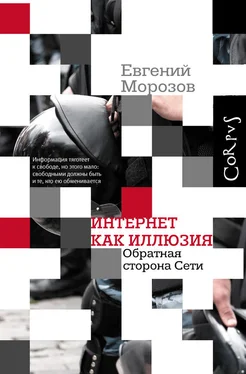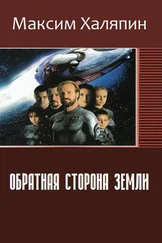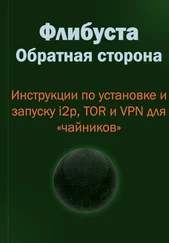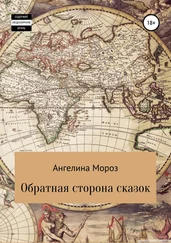New York Times, March 4, 2007.
Berdahl, D. Where the World Ended: Re-unification and Identity in the
German Borderland . Berkeley: University of California Press, 1999. Betts, P. The Twilight of the Idols: East German Memory and Material
Culture // Journal of Modern History 72, no. 3 (2000): 731–765. Breitenborn, U. “Memphis Tennessee” in Borstendorf: Boundaries Set and Transcended in East German Television Entertainment // Histo-rical Journal of Film, Radio and Television 24, no. 3 (2004): 391–402.
Chang, Anita Some Internet Porn Sites in China Now Accessible //
Associated Press, July 22, 2010.
Coleman, Peter Thinking About Life: A Brave New World // Uni-ted Press International, July 22, 2002.
Cooper, Robert Freedom for Sale: How We Made Money and Lost Our Liberty by John Kampfner / Democracy Kills by Humphrey Hawksley // Sunday Times, September 6, 2009.
Daly, Peter M., et al., eds. Germany Reunified: A Five– and Fifty-Year Retrospective . New York: P. Lang, 1997.
Darnton, R. Censorship, a Comparative View: France, 1789 – East Germany, 1989 // Representations (1995): 40–60.
Daves, William Is It Aldous Huxley or George Orwell? // New Statesman, August 1, 2005.
Demich, Barbara For Chinese, Getting into Harvard Is a Class Act // Los Angeles Times, June 4, 2010.
Despite Authoritarian Rule, Myanmar Art Grows // New York Times, March 25, 2010.
DeYoung, Karen U. S. Media Campaign Has Failed to Influence Cuba, Senators Say // Washington Post, May 4, 2010.
Dittmar, C. GDR Television in Competition with West German Pro-gramming // Historical Journal of Film, Radio and Television 24, no. 3 (2004): 327–343.
Eickelman, D. F. Islam and the Languages of Modernity // Daeda-lus 129, no. 1 (2000): 119–135.
Farrer, J. A Chinese-Led Global Sexual Revolution // Contexts 7, no. 3 (2008): 58–60.
Forney, Matthew China’s Loyal Youth // New York Times, Ap ril 13, 2008.
For the Young Hillary Rodham, Which Individuals and Books Were Most
Influential? // Pittsburgh Post-Gazette, April 11, 1993. Fukuyama, Francis Our Posthuman Future: Consequences of the Bio-technology Revolution . New York: Farrar, Straus and Giroux, 2002.
Fulbrook, Mary History of Germany, 1918–2000 : The Divided Nation. 2nd ed. Malden, MA: Wiley-Blackwell, 2002.
Fung, A. “Think Globally, Act Locally”: China’s Rendezvous with MTV // Global Media and Communication 2, no. 1 (2006): 71. Gleye, Paul Behind the Wall: An American in East Germany, 1988—
1989. Carbondale: Southern Illinois University Press, 1991. Gordon, Wendy J. Listen Up, Ready or Not // New York Times,
November 21, 1993.
Hargittai, E. Digital Na (t) ives? Variation in Internet Skills and Uses Among Members of the Net Generation // Sociological Inqui-ry 80, no. 1 (2010): 92–113.
Havel, VÁclav, et al. The Power of the Powerless: Citizens Against the State in Central-Eastern Europe . John Keane, ed. Armonk, NY: M. E. Sharpe, 1985.
Hendelman-Baavur, L. Promises and Perils of Weblogistan: Online Personal Journals and the Islamic Republic of Iran // Middle East Review of International Affairs 11, no. 2 (2007): 77.
Hesse, K. R. Cross-Border Mass Communication from West to East Germany // European Journal of Communication 5, no. 2 (1990): 355.
Hille, Kathrin, and Robin Kwong Chinese Consumers Opt for Bigger TVs than American Counterparts // Financial Times, Oc-tober 24, 2009.
Hirschman, A. O. Exit, Voice, and the Fate of the German Demo-cratic Republic: An Essay in Conceptual History // World Politics (1993): 173–202.
Hoff, P., and W. MÜhll-Benninghaus Depictions of America in GDR Television Films and Plays, 1955–1965 // Historical Journal of Film, Radio and Television 24, no. 3 (2004): 403–410.
Hoff, P., and L. Willmot Continuity and Change: Television in the GDR from Autumn 1989 to Summer 1990 // German History 9, no. 2 (1991): 184.
Huxley, Aldous Brave New World and Brave New World Revisited . New York: HarperCollins, 2004.
Iran Pours Oil Fund Billions into Wooing Disaffected Youth // Indepen-dent, September 1, 2005.
Junker, Detlef, and Philipp Gassert The United States and Germany in the Era of the Cold War, 1945–1990 : A Handbook . Vol. 1. New York: Cambridge University Press, 2004.
Kampfner, John Freedom for Sale: How We Made Money and Lost
Our Liberty . Kindle edition. New York: Simon & Schuster, 2009. Kellner, D. From 1984 to One-Dimensional Man: Critical Reflections on Orwell and Marcuse // Current Perspectives in Social Theory 10 (1990): 223–252.
Kern, H. L. Foreign Media and Protest Diffusion in Authoritarian Re-gimes: The Case of the 1989 East German Revolution // Compara-tive Political Studies, March 16, 2010.
Kern, H. L., and J. Hainmueller Opium for the Masses: How Foreign Media Can Stabilize Authoritarian Regimes // Political Analysis 17, no. 4 (2009): 377–399.
Khiabany, G. Iranian Media: The Paradox of Modernity // Social Semiotics 17, no. 4 (2007): 479–501.
Klein, Naomi China’s All-Seeing Eye // Rolling Stone, May 14, 2008. KohÁk, E. Ashes, Ashes… Central Europe After Forty Years //
Daedalus 121, no. 2 (1992): 197–215.
Korosteleva, Elena Was There a Quiet Revolution? Belarus After the 2006 Presidential Election // Journal of Communist Studies and Transition Politics 25, no. 2 (June 2009): 324–346.
Kraidy, M. M. Reality TV and Multiple Arab Modernities: A Theoreti-cal Exploration // Middle East Journal of Culture and Communi-cation 1, no. 1 (2008): 49–59.
Lagerkvist, J. Internet Ideotainment in the PRC: National Responses to Cultural Globalization // Journal of Contemporary China 17, no. 54 (2008): 121–140.
Manaev, Oleg The Influence of Western Radio on the Democra-tization of Soviet Youth // Journal of Communication 41, no. 2 (June 1991): 72–91.
Marcuse, Herbert One-Dimensional Man: Studies in the Ideology of Advanced Industrial Society . New York: Routledge, 2002.
Maza, Erik Cuban Commies Give Avatar the Thumbs-Down // Mi-ami New Times, February 18, 2010.
Meyen, M., and W. Hillman Communication Needs and Media Change: The Introduction of Television in East and West Germany // European Journal of Communication 18, no. 4 (2003): 455.
Meyen, M., and U. Nawratil The Viewers: Television and Every-day Life in East Germany // Historical Journal of Film, Radio and Television 24, no. 3 (2004): 355–364.
Meyen, M., and K. Schwer Credibility of Media Offerings in Cen-trally Controlled Media Systems: A Qualitative Study Based on the Example of East Germany // Media, Culture & Society 29, no. 2 (2007): 284.
Miller Llana, Sara Cuba’s Youth: Restless but Not Often Political // Christian Science Monitor, July 26, 2008.
Mirsky, Jonathan Vietnam Now // New York Review of Books, June 24, 2010.
Mobile Phones Change Dating Habits as Saudis Search for New Iden-tity // Irish Times, March 3, 2009.
Moore, Matthew China to Lead World Scientific Research by 2020 // Daily Telegraph, January 25, 2010.
Mostaghim, Ramin, and Borzou Daragahi Iran’s Other
Youth Movement // Los Angeles Times, June 10, 2007. Murphy, Caryle Saudi Women Revel in Online Lives // Global
Post, February 4, 2010. www.globalpost.com/dispatch/saudi-ara-bia/100203/internet-women.
Читать дальше
Конец ознакомительного отрывка
Купить книгу











